|

Three Big Wins in the 2021 Legislative Session
NAIOPWA has been involved with the state legislative process for more than four decades. It’s with this depth of experience that we report both that the 2021 session was one of the more challenging for our industry in recent years, and how we managed to come out with three significant wins this year.
During the session, dozens of bills were introduced that, if passed, would have had a devastating impact on the commercial real estate development community. While in the end, some of these were favorably amended and several others failed, many of the same issues are expected to return in 2022.
Thanks to our supporters, particularly those who contribute to our government affairs and advocacy campaigns, our chapter kept our place at the table and secured important wins for CRE and the business community at large in Washington state.
Multi-family Tax Exemption (MFTE) Extended
Washington’s MFTE program is a nationally lauded tax-incentive program that’s a win-win for business, residents and the CRE industry that encourages mixed-rate and affordable housing development. Due to the focus this year on raising state revenue through taxes, renewing this program looked like an unlikely sell. NAIOPWA worked with the legislature to extend the MFTE program and allow for current MFTE qualified structures to renew for an additional 12 years. 5287-S2.SL.pdf (wa.gov)
TIF For Jobs Finally Passed
Tax Increment Financing, or TIF, provides local governments with a financial tool to support development in areas unlikely to see growth, and simultaneously funds publicly owned infrastructure. Until this year, Washington was one of only two states without this important tool, which can provide crucial funds for ever-growing infrastructure needs without increasing tax rates. The program enables local governments or partnering municipalities to identify an area where development would improve quality of life, business opportunities, and property values, and support that development (including infrastructure) through collecting an increment of increased property tax revenues based on the original vs. new property values. In 2021, NAIOPWA worked with a coalition of economic development organizations and local governments to propose and support HB 1189 to allow for TIF in Washington State. 1189-S.SL.pdf (wa.gov)
Capital Gains Tax: Real Estate Excluded
The Capital Gains Tax bill was introduced with the intention to exempt real estate; however, that exemption was not included in the bill as it evolved mid-session. NAIOPWA worked quickly to address the issue and brought in a tax attorney to work directly with the state department of revenue. The bill as passed includes a clear and complete description of real estate and ensures its exemption from this tax. 5096-S.SL.pdf (wa.gov)
Other Legislative Priorities
Our advocacy efforts covered a wide variety of issues and topics during the 2021 legislative session, including:
- Rent control proposals received hearings during the legislative session but did not pass the legislature. NAIOPWA’s support of The Partnership for Affordable Housing was key to success in this measure.
- Building energy efficiency legislation was introduced to bring buildings under 50,000 square feet into the building energy efficiency requirements that were adopted for larger buildings in 2019. NAIOPWA worked with the sponsor of the bill on a series of amendments to provide more detail on the new requirements for building owners to control costs and to require that any rulemaking include an assessment of the impacts on small businesses. The legislation was not adopted.
- Just-cause evictions legislation, which implements just cause eviction language statewide, similar to Seattle's existing language. 1236-S.SL.pdf (wa.gov)
- A commercial eviction moratorium, similar to the residential moratorium, was proposed by the governor’s office. NAIOPWA worked with the governor’s office and other interest groups to narrow the parameters of the proposal. In the end, no commercial eviction moratorium was announced.
- An eviction moratorium was introduced that would have extended the eviction proclamation for two years after the current emergency declaration is lifted. The bill passed the legislature without the two-year eviction moratorium extension. 5160-S2.SL.pdf (wa.gov)
Upcoming Challenges
Both the Freedom Foundation and the Opportunities for All Coalition have filed lawsuits challenging the legality of the Capital Gains Tax.
Finally, transportation committee leaders from both chambers are meeting out of session to craft a transportation infrastructure package intended for proposal in an interim special session before January. The Senate proposal (click to read online) includes a new, statewide transportation assessment on new construction estimated to raise $803 million; their overall transportation package is intended to cover 16 years at a cost of $18 billion. If passed, the assessment would begin in 2023 and would apply the below rates to any increase in assessed value derived from new construction:
- Residential parcels: $1.50 per $1,000* (0.15%);
- Manufacturing parcels: $1 per $1,000* (0.1%) and
- All other types, including most commercial property: $3 per $1,000* (0.3%).
*Rate is per $1,000 increase in assessed value resulting from new construction.
2022 Legislative Concerns
Speculation is challenging, but we expect that the issues below are likely to arise in 2022:
- Rent control;
- Building Energy Efficiency Standards for buildings 50,000 square feet and smaller;
- Natural gas bans, required retrofits, or limitations in new structures; and
- Split roll property tax.
Contribute to the NAIOPWA PAC
The 2022 election will be critical for the future of commercial real estate in Washington state. The NAIOPWA PAC provides contributions to candidates who support the commercial real estate industry.
NAIOP Washington State members and non-member supporters may contribute to the PAC online or by mail.
Send checks to:
NAIOP Washington State PAC
PO Box 24183
Seattle, WA 98124
NAIOPWA 2021 Government Affairs Contributors
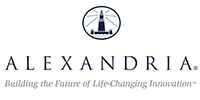 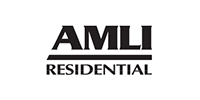       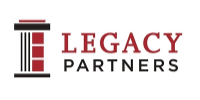   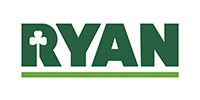   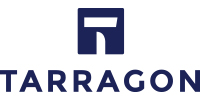 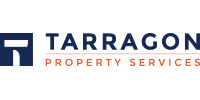     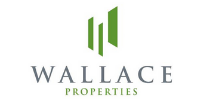
|






















